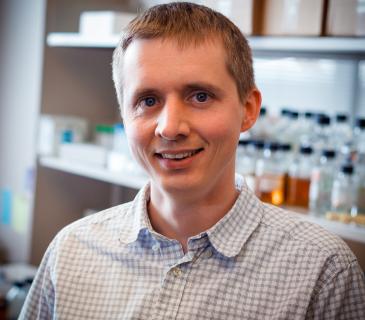Joseph T. Wade, Ph.D.

Our laboratory studies how bacteria regulate their gene expression. We are particularly interested in transcriptional regulation in the non-pathogenic model organism Escherichia coli, and in pathogenic strains of Salmonella and Yersinia. We also study regulation of mRNA stability and of translation by non-coding RNAs.
Transcription is a multi-step process consisting of initiation, elongation and termination phases, each of which is the target of regulation by proteins called transcription factors. We use E. coli as a model organism to study the mechanisms of transcriptional regulation. In particular we use genomic approaches to better understand how transcription factors function on a global scale. We have identified hundreds of novel protein-DNA interactions that regulate transcription, including binding sites for many transcription factors in unexpected locations, e.g. inside genes. We have also identified over 1,000 promoters located inside annotated genes, in both sense and antisense orientations. We are investigating the importance of these promoters, and the resulting RNAs, in global gene regulation.
Transcription factors and non-coding RNAs contribute to the regulation of virulence genes in pathogenic bacterial species. We use genomic approaches such as ChIP-seq, RNA-seq and Ribo-seq to identify the regulatory targets of transcription factors in Salmonella typhimurium and Yersinia pestis. Using these methods, we have identified novel targets of known virulence regulators and novel regulators of virulence genes.
To learn more, please visit the Wade Laboratory[1].
